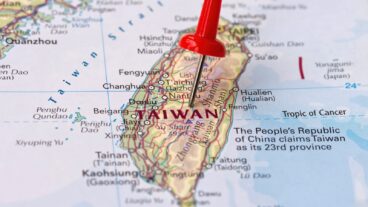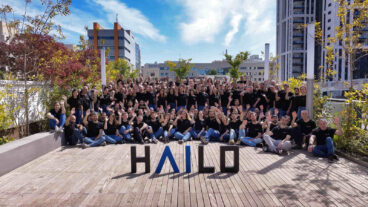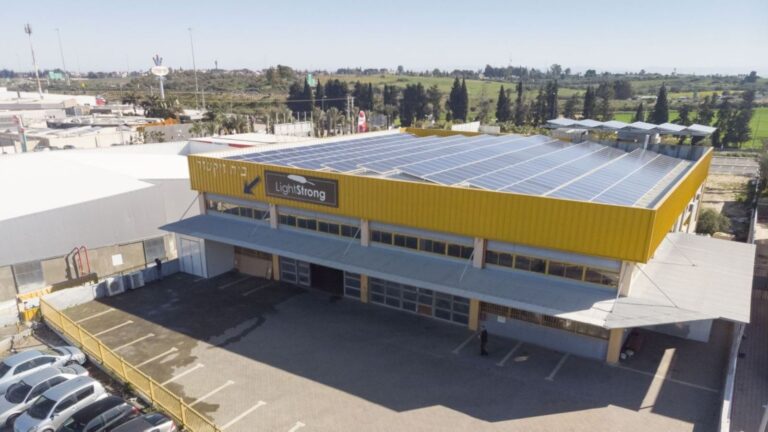Israeli high-tech companies raised $1.55 billion in 131 financing rounds in the third quarter of 2018, according to a report released this week by Tel Aviv-based IVC Research Center and ZAG law firm.
In October, multinational Israeli company JFrog completed a $165 million funding led by New York-based Insight Venture Partners with participation from Geodesic Capital, Spark Capital, Dell Technologies subsidiary VMware, Battery Ventures, Scale Venture Partners, Gemini Israel Ventures and Qumra Capital Management.
With offices in Netanya, Sunnyvale (California), Beijing, Toulouse, and Bengaluru, JFrog develops tools to streamline coding and automate software updates. Amazon, Google, Bank of America, Uber and Netflix are among the company’s clients.
In other investment news last month, Glilot Capital Partners of Herzliya Pituah closed its third fund at $110 million. Glilot focuses on early stage artificial intelligence, big data and cybersecurity startups.
Shavit Capital of Jerusalem completed a $100 million funding round for its fifth fund. The firm specializes in pre-IPO investments in technology companies, especially those in the life-science sector.
Tel Aviv-based cybersecurity startup VC firm Team8 launched a new fund with $85 million from 14 international backers including Walmart, SoftBank Group, Airbus Group, Temasek Holdings, Moody’s Investors Service, Microsoft, Barclays, Dimension Data Holdings, Nokia, and Cisco.
Brand-new pharma company 89Bio raised $60 million in Series A funding from OrbiMed Israel, OrbiMed US, Longitude Capital, RA Capital Management and Pontifax. The company was founded last January to further develop a treatment for liver and metabolic diseases that was originally developed at Teva Pharmaceutical Industries. Its main headquarters are in San Francisco while R&D is in Herzliya.
Cybersecurity company Demisto raised $43 million from Greylock Partners, ClearSky and Accel Partners. Based in Tel Aviv, Demisto has additional offices in California.
Japan’s SoftBank Group led a $35 million round for sports-tech company Heed, which is based in New York and London with an R&D center in Tel Aviv.
Also raising $35 million was White Source of Tel Aviv, which pioneered an automated open source security management solution. Backers include Susquehanna Growth Equity, 83North and M12 Microsoft Ventures.
Three Israeli companies raised $30 million during October: Industrial drone company Airobotics of Petah Tikva (from Pavilion Capital, Charles River Ventures, BlueRun Ventures and OurCrowd); cloud-services company CTERA Networks, also of Petah Tikva (from Red Dot Capital Partners, Temasek Holdings, Singtel Innov8, Benchmark Capital, Bessemer Venture Partners, Cisco, Venrock, Vintage Investment Partners and Viola Group); and blockchain startup StarkWare Industries of Netanya (from Paradigm, Coinbase, Sequoia Capital and Intel Capital).
Two companies raised $25 million: Yokne’am-headquartered flash storage company Kaminario (from Western Digital Capital); and digital customer experience optimization company Glassbox of Petah Tikva (from Updata Partners, Ibex Investors, CEIIF, and Gefen Capital).
Rehovot-based Cognata closed an $18.5 million funding round led by Scale Venture Partners with the participation of Emerge, Maniv Mobility, Airbus Ventures and Global IoT Technology Ventures. Cognata is developing a test-driving simulation platform using artificial intelligence, deep learning and computer vision.
Tel Aviv-based cybersecurity startup Hysolate raised $18 million in Series B funding from Bessemer Venture Partners, Innovation Endeavors and NGP Capital.
Tel Aviv-based computer vision company eyeSight closed a $15 million growth round for its AI computer-vision system for semi-autonomous vehicles, smart home and consumer electronics. Investors included Jebsen Capital, Arie Capital and Mizrahi Tefahot.
Immuno-oncology drug discovery and development company Compugen of Holon raised $12 million from Bristol-Myers Squibb, which is buying a 33% stake in the company. The investment comes in conjunction with a clinical trial of a treatment that combines a Compugen investigational antibody with a Bristol-Myers Squibb immune checkpoint inhibitor. The treatment will be tested in lung, ovarian, breast and endometrial cancer.
Medical cannabis company Canndoc Pharma (formerly InterCure) raised $12 million from controlling shareholder Alex Rabinovich and from Gary Fegel of GMF Capital. Chaired by former Prime Minister Ehud Barak, Cannadoc is said to be the only company on the Tel Aviv Stock Exchange with a permanent license covering the entire medical cannabis value chain.
Industrial robotics startup Kitov Systems of Rosh HaAyin raised $10 million from Hahn Automation and Global IoT Technology Ventures; while cybersecurity software company Nyotron of Herzliya got a $10 million investment from strategic partner and distributor Ingram Micro.
Vayavision of Tel Aviv closed an $8 million seed round led by Viola Ventures, Mizmaa Ventures, and OurCrowd, with strategic investment from Mitsubishi UFJ Capital and LG Electronics. The company develops data fusion and perception systems for autonomous vehicles.
Jolt of Tel Aviv received $7.2 million in funding from Octopus Ventures, Hillsven Capital and PICO Partners to advance its worldwide network of innovative learning spaces for professional development.
PureSec serverless security company of Tel Aviv closed a $7 million Series A round led by Square Peg Capital with participation from TLV Partners and Entrée Capital.
Yissum, the technology-transfer company of the Hebrew University of Jerusalem, secured $6 million from international strategic and institutional investors to launch a new NanoTech Fund focusing exclusively on promising innovations emerging from the university’s nanotech research labs. The fund is meant to raise up to $9 million.
Retail-tech startup ciValue Systems of Yokne’am Illit completed a $6 million Series A investment round led by the Nielsen Innovate incubator and by Sonae IM of Portugal. The company also has offices in New York and Paris.
Samsung NEXT, Benson Oak, Elron Ventures and FJ Labstook part in a $4 million seed funding round for Tel Aviv-based crypto wallet startup KZen Networks.
Also raising $4 million in October: Tel Aviv-based organizational data encryption startup Kindite from RDC and CE Ventures; retail-tech startup Placer Labs of Tel Aviv and California; Equinom, a computational seed- breeding company based in Givat Brenner, from French food, nutrition and health ingredients company Roquette and Fortissimo Capital for the development of new high-protein pea varieties; and Tel Aviv- and New York-based fintech startup FundGuard from Blumberg Capital and LionBird Ventures.
Silicon Valley- and Tel Aviv-based startup Stellares, which is developing a platform based on artificial intelligence for matching companies to candidates in the labor market, completed a $3.5 million seed financing round led by Jerusalem Venture Partners (JVP) and private investors.
Skyline Robotics of Tel Aviv, which is piloting a robotic window-cleaning system for skyscrapers, announced a $3 million seed round led by Gefen Capital with participation from ICONYC, the Israeli government, and real-estate businesses including Bosa Properties and Sufrin Group.
Blockchain security startup Valid Network of Haifa raised $2 million in a seed round led by JVP, which has accepted Valid Network into its JVP Cyber Labs accelerator in Beersheva.
Also raising $2 million in October: Tel Aviv- and Amsterdam-based Wasteless, a startup using automatic dynamic pricing to reduce food waste; and San Diego- and Rishon LeZion-based Workiz, which makes professional field-service management and scheduling software used in the United States and Canada.
Retail-tech startup Workiz of Binyamina-Giv’at Ada raised $1.5 million in a seed round led by Terra Venture Partners with participation of a group of European investors managed by Jerusalem-based Champel Capital.
Tel Aviv-based Maverick Medical AI raised approximately $675,000 from The Time and from the Israel Innovation Authority to further develop its natural language processing and machine learning technologies that scan through medical records to identify clinical risk factors.
TechSee Augmented Vision of Herzliya received a strategic investment by Salesforce Ventures. The financial terms of the deal were not disclosed.
















